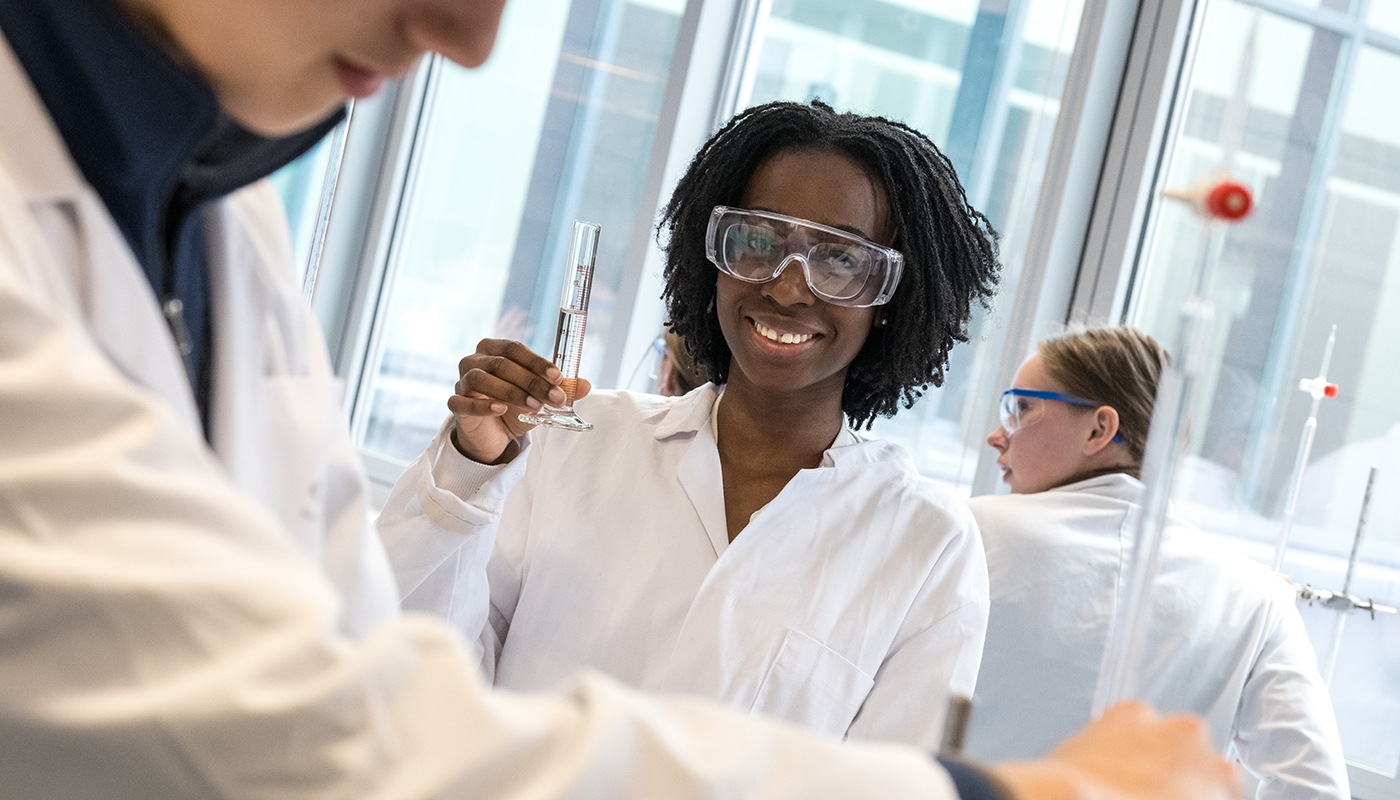Chemistry

A level Chemistry involves laboratory practical investigations, analysis and group-work to develop your understanding. At first you will build on topics covered in GCSE including materials (structure, bonding, electron configurations), a unit covering organic chemistry (alkanes and alcohols) and physical chemistry (rates of reaction and energy changes) as well as modern analytical methods and mass spectrometry and infrared spectroscopy. Later you will study further organic chemistry and analytical techniques, including nuclear magnetic resonance. There is also more physical and inorganic chemistry, including rates, equilibrium, entropy, electrode potentials, energy for the future, and environmental issues.
The Chemistry Society is a student-led group that explores chemistry beyond the specification. Activities include presentations, discussions, debates and group research. There are also opportunities for students to enter the Cambridge Chemistry Challenge and the national Chemistry Olympiad.
A qualification in chemistry is highly valued and leads to a wide variety of careers including in the chemical industry, public services, teaching, technical writing and patent law. Chemistry is also an essential subject for those wishing to study medicine, veterinary medicine, pharmacy and dentistry.
Periodic table, elements and physical – Exam Paper – 37% of marks
Chemistry – Exam Paper – 37% of marks
Unified Chemistry – Exam Paper – 26% of marks
Summary
The course is divided into 6 modules
Module 1 – Development of practical skills in chemistry
Practical skills assessed in a written examination
Module 2 – Foundations in chemistry
Atoms, compounds, molecules and equations; Amount of substance; Acid–base and redox reactions; Electrons, bonding and structure.
Module 3 – Periodic table and energy
The periodic table and periodicity; Group 2 and the halogens; Qualitative analysis; Enthalpy changes; Reaction rates and equilibrium (qualitative).
Module 4 – Core organic chemistry
Basic concepts; Hydrocarbons; Alcohols and haloalkanes; Organic synthesis; Analytical techniques (IR and MS).
Module 5 – Physical chemistry and transition elements
Reaction rates and equilibrium (quantitative); pH and buffers; Enthalpy, entropy and free energy; Redox and electrode potentials; Transition elements.
Module 6 – Organic chemistry and analysis
Aromatic compounds; Carbonyl compounds; Carboxylic acids and esters; Nitrogen compounds; Polymers; Organic synthesis; Chromatography and spectroscopy (NMR).
The A level Chemistry course requires you to have the basic chemistry knowledge and skills learnt in your GCSE course. It is a good idea to read over your GCSE notes or to use a revision guide to go over some of the key ideas before you start. The following topics are a good place to start:
• Atomic structure
• Formulae and calculations
• Oxidation and reduction
• Structure and bonding
Reading about chemistry and developing an interest in the wider subject is all part of becoming an advanced level student.
Study Level
A Level
Exam Board
OCR
Contact Details
Laurence Potts
Head of Department
potts_l@sjd.ac.uk